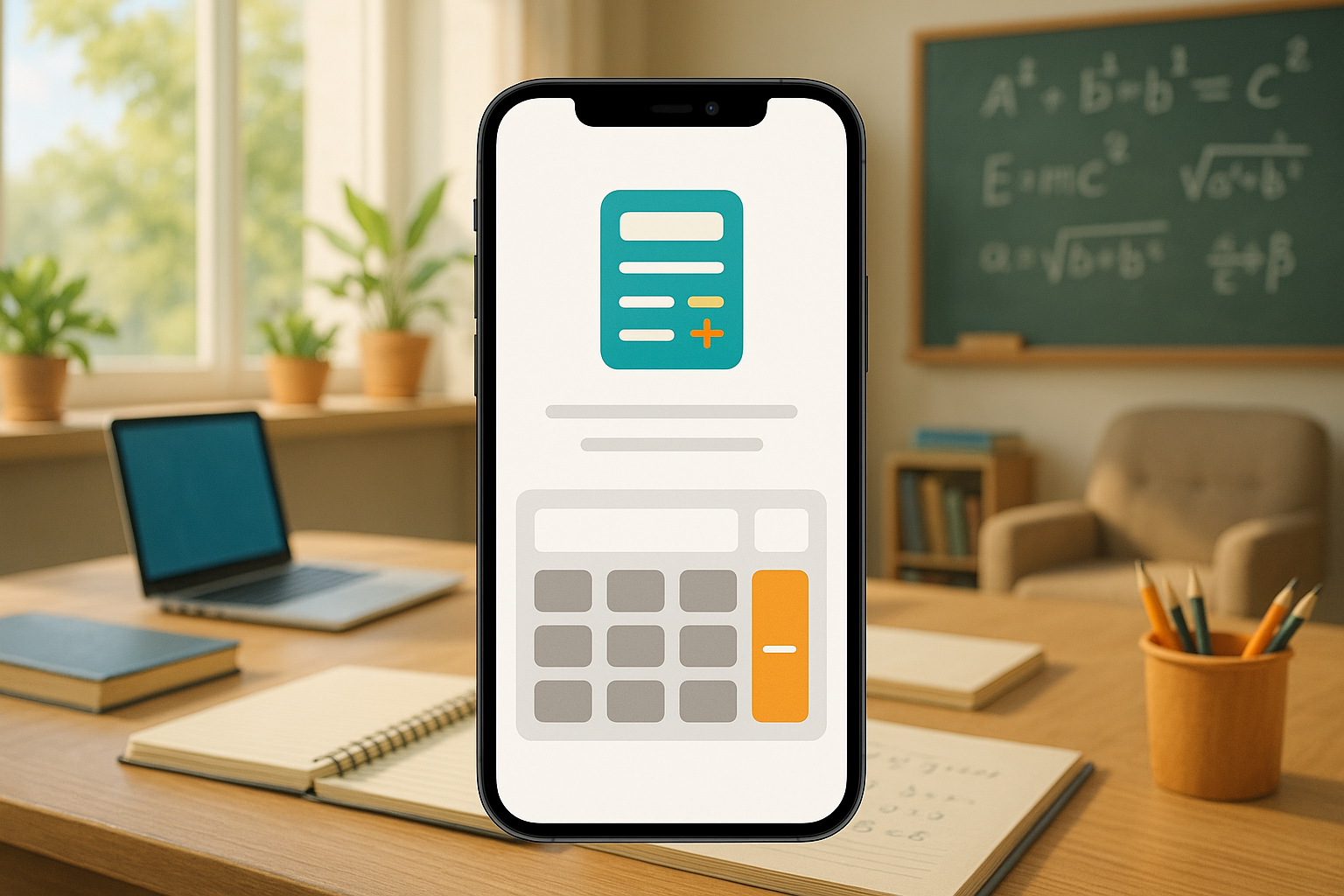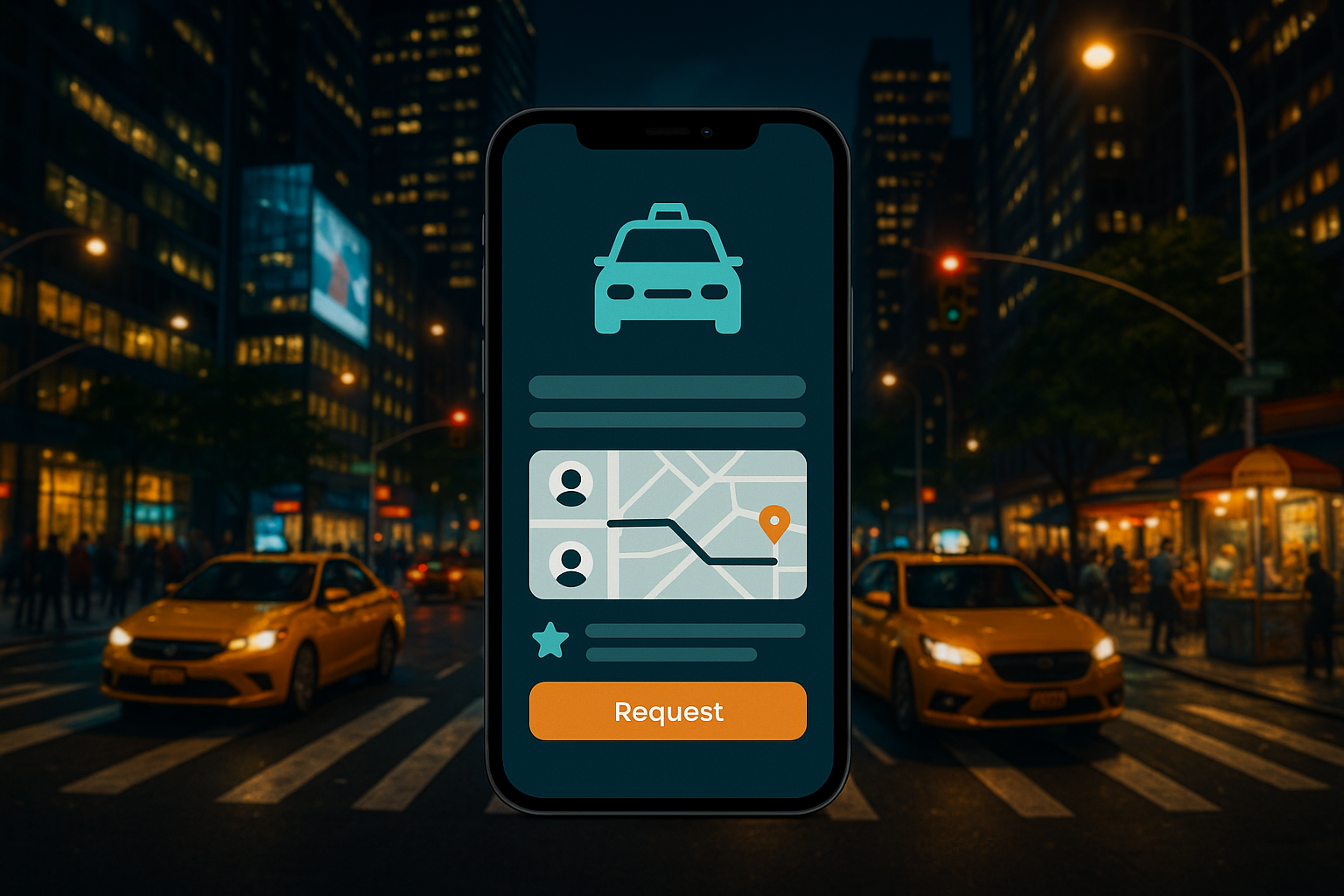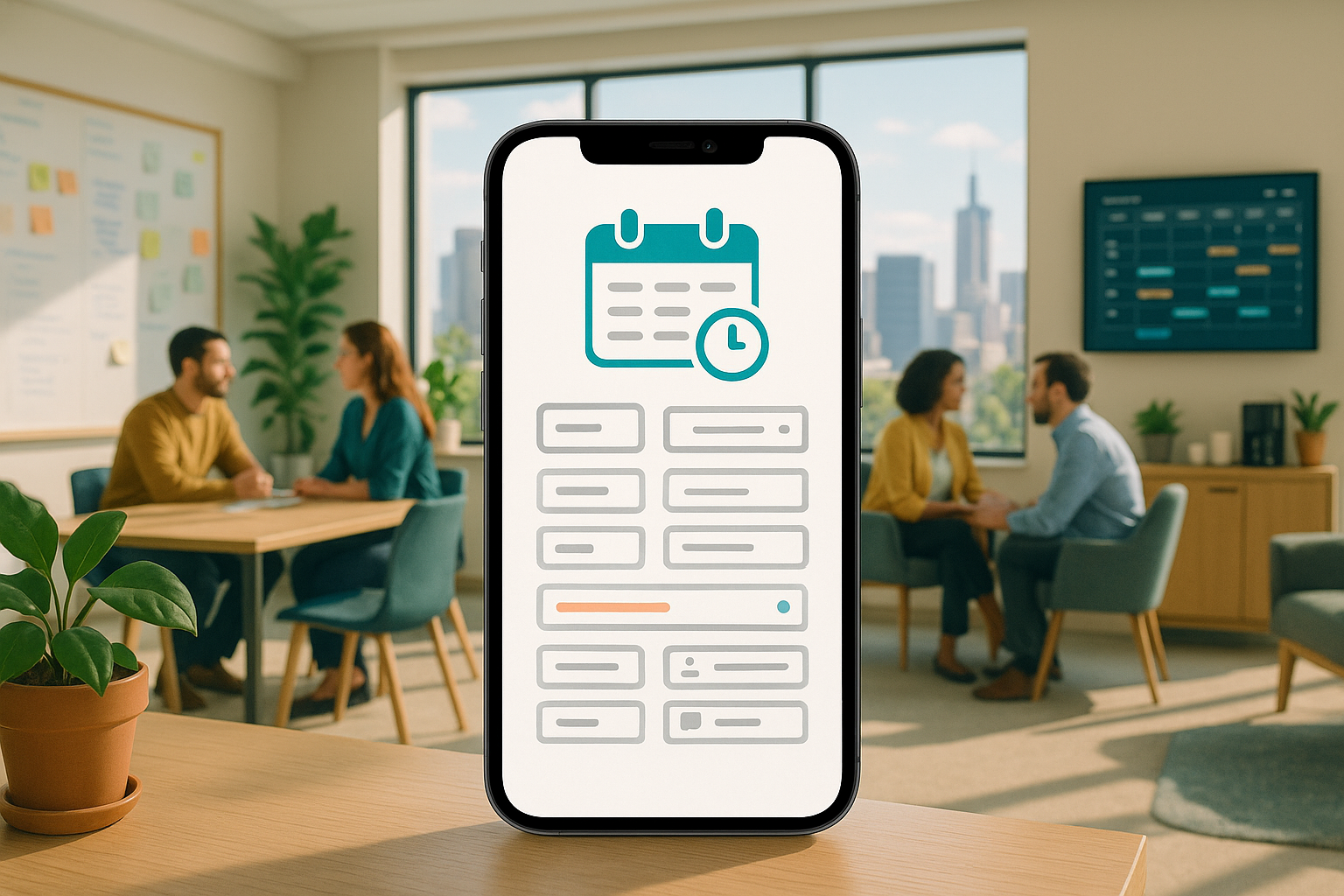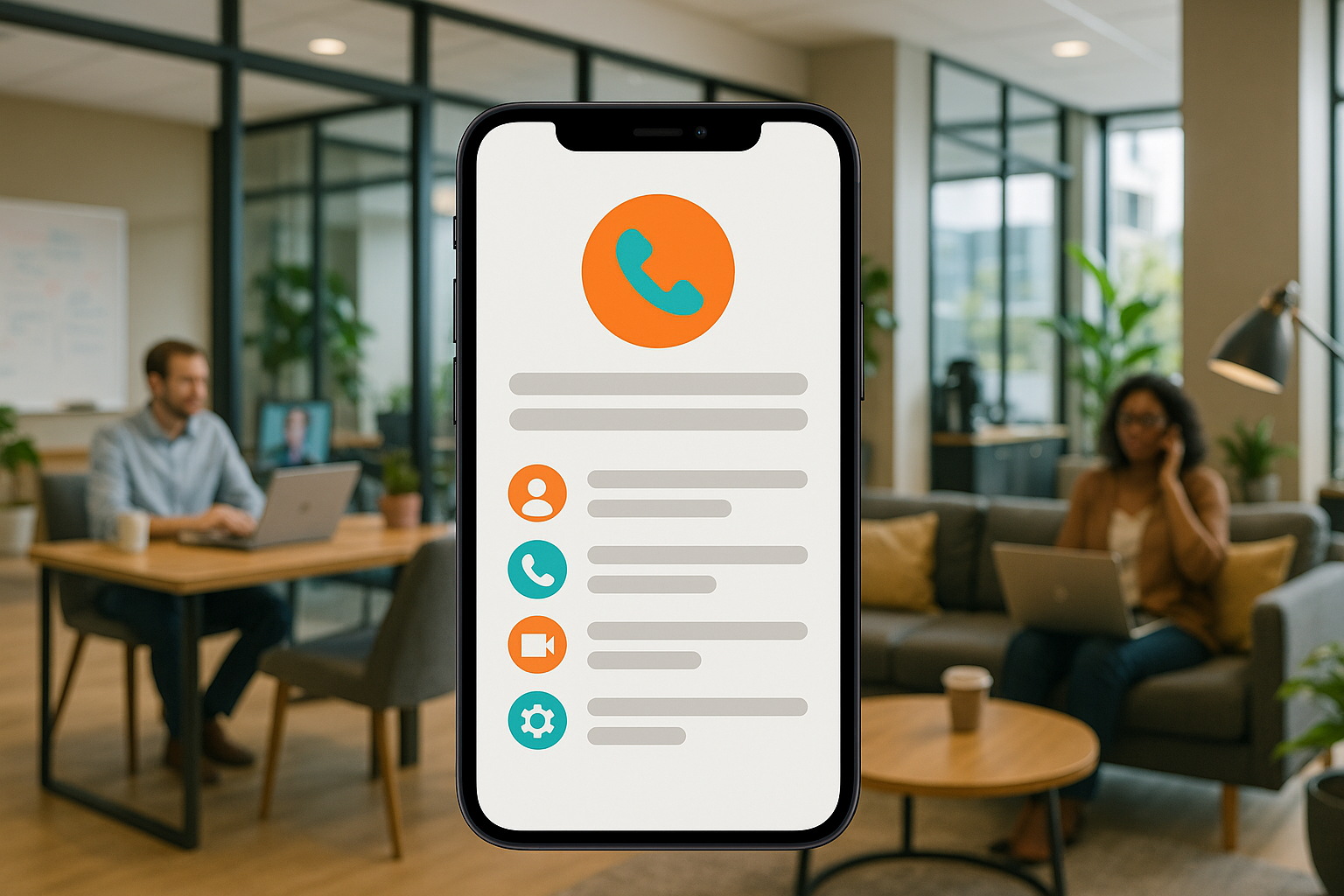Introduction
At first glance, a calculator app seems like one of the simplest applications one could develop. It performs basic arithmetic—a task computers have excelled at for decades. However, this perceived simplicity masks a surprising depth of technical complexity. The journey from concept to a polished, reliable, and user-friendly calculator app is fraught with challenges that can easily derail an in-house development team lacking specialized experience. From ensuring the mathematical accuracy of every calculation across countless edge cases to implementing a responsive design that works flawlessly on any device, the details are what separate a forgotten app from a daily-use utility.
Developing a successful calculator app requires a deep understanding of operator precedence, floating-point arithmetic, cross-platform UI/UX design, accessibility standards, and monetization strategies. It is far more than just connecting buttons to functions. This article will serve as a comprehensive guide to the world of calculator app development. We will explore what defines a modern calculator app, dissect the significant technical hurdles that make in-house development difficult, and examine the different types of calculator apps you can build. Furthermore, we will provide a realistic cost estimate and introduce the top development companies that can help bring your vision to life.
As a leading US AI-powered mobile app development firm with over two decades of experience, we at MetaCTO have successfully launched more than 120 projects, helping our partners navigate these very challenges. We transform ambitious ideas into market-ready applications that not only function perfectly but also attract customers, secure investment, and generate revenue. In this guide, we will share insights gleaned from our extensive experience to help you build your calculator app the right way, from day one.
What is a Calculator App?
A calculator app is a software application designed to perform calculations. While this definition is straightforward, the scope and functionality of these apps can vary dramatically. At their core, they provide users with a digital tool to solve mathematical problems, but their implementation can range from the most basic arithmetic to highly specialized scientific and financial computations.
The modern calculator app extends beyond simple number crunching. Based on what is available in the market, calculator apps can be categorized by their complexity and purpose:
- Simple Apps: These are the most common type, replicating the functionality of a basic handheld calculator. They are designed for quick, everyday calculations like addition, subtraction, multiplication, and division.
- Scientific Calculators: These apps offer a much broader range of functions required by students, engineers, and scientists. They include trigonometric functions, logarithms, exponential functions, and more advanced mathematical capabilities.
- Utility Hybrids: Some applications use the familiar interface of a calculator as a front for entirely different functionality. A “Calculator Lock” app, for example, looks and works like a standard calculator but allows users to hide photos, videos, or other files behind a secret passcode entered into the calculator itself.
The choice of what kind of calculator app to build is the first and most critical strategic decision. It dictates the entire scope of the project, from the technical architecture and feature set to the target audience and potential monetization model. It defines whether you are building a simple utility or a complex, feature-rich platform.
Reasons It Is Difficult to Develop a Calculator App In-House
The seemingly simple nature of a calculator app belies a trio of significant technical challenges that can overwhelm development teams without deep, specific expertise. These hurdles involve intricate logic, demanding design standards, and a commitment to inclusivity that requires a specialized skill set. Attempting to tackle these in-house can lead to budget overruns, extended timelines, and a final product that is unreliable or frustrating for users.
Challenge 1: Ensuring Calculation Accuracy and Reliability
The absolute, non-negotiable requirement of any calculator app is that it must be accurate. A single wrong calculation can destroy user trust permanently. Muhammad Gad, a developer who shared his experience building a calculator app, identified this as one of his main challenges. The difficulty lies not in performing simple arithmetic but in correctly handling the complex rules and exceptions of mathematics.
- Operator Precedence: Your app must correctly follow the established order of operations (PEMDAS/BODMAS). This means expressions like
2 + 3 * 4must be evaluated as2 + 12 = 14, not5 * 4 = 20. Implementing a parser and evaluation engine that respects these rules for complex, nested expressions is a non-trivial computer science problem. - Edge Cases: A robust calculator must gracefully handle a multitude of edge cases. What happens when a user tries to divide by zero? How does the app manage calculations with extremely large or small numbers that push the limits of standard data types? How does it handle floating-point inaccuracies (e.g.,
0.1 + 0.2not equaling0.3perfectly in binary)? Thoroughly identifying, testing, and managing these edge cases requires a meticulous approach and extensive quality assurance.
Challenge 2: Achieving a Consistent and Responsive Design
Another significant challenge Muhammad Gad faced was implementing multiple themes while ensuring the app’s design was consistent and responsive across all devices. In today’s fragmented mobile ecosystem, this is a major undertaking.
- Cross-Device Consistency: Users expect a seamless experience whether they are on a small smartphone, a large tablet, an iPhone, or an Android device. Each platform and screen size has its own resolution, aspect ratio, and UI conventions. Creating a layout that looks good, remains usable, and feels native on every possible screen requires sophisticated responsive design techniques.
- Theming: Offering users options like light and dark modes is now a standard expectation for a quality user experience. Implementing themes requires more than just swapping a few colors. Every single UI element—buttons, text, backgrounds, icons—must be designed to work cohesively within each theme. This doubles the amount of design and styling work and adds another layer of testing to ensure consistency and readability in all modes.
Challenge 3: Implementing Full Accessibility
A modern app must be usable by everyone, including individuals with disabilities. This commitment to accessibility is not just good practice; it is often a business and legal necessity. Building an accessible app requires specialized knowledge that is often overlooked by development teams.
- Screen Reader Compatibility: For users who are blind or have low vision, the app must be compatible with screen readers. This involves incorporating ARIA (Accessible Rich Internet Applications) roles and properties into the code. These roles tell the screen reader what each element is (e.g., “button,” “output display”) and its current state, allowing the user to navigate and operate the calculator without seeing it.
- Keyboard Navigation: Users with motor impairments may rely on a physical keyboard or other switch devices to navigate the app. This means ensuring that every interactive element is focusable and can be activated using keyboard commands (like the Tab and Enter keys). The navigation must be logical and smooth, allowing the user to move through the calculator’s buttons and functions efficiently.
Hiring a specialized development agency like MetaCTO can help you overcome these challenges. Our team has over 20 years of experience in custom mobile app development and has navigated these exact technical hurdles across more than 120 successful projects. We bring the necessary expertise in backend logic, responsive UI/UX design, and accessibility standards from day one, saving you the time and expense of building that expertise in-house.
Different Types of Calculator Apps
While all calculator apps perform calculations, their form and function can be tailored to meet the needs of vastly different user bases. Understanding these categories is essential for defining your product’s scope, identifying your target market, and planning your development roadmap. The choice you make will directly influence the app’s complexity, feature set, and ultimately, its cost and development timeline.
Simple Calculator Apps
This is the most fundamental category, designed to be a digital replacement for the basic pocket calculator. Its primary goal is to provide a quick, reliable, and easy-to-use tool for everyday arithmetic.
- Functionality: These apps are typically limited to the four basic operations: addition, subtraction, multiplication, and division. They may also include functions for percentages and memory storage (M+, M-, MR, MC).
- Target Audience: The audience is broad and universal—anyone who needs to perform a quick calculation, from splitting a dinner bill to checking figures on a shopping trip.
- Development Focus: For a simple calculator, the development focus is less on adding features and more on perfecting the core experience. This means a clean, uncluttered interface, large and easy-to-press buttons, and lightning-fast performance. While the mathematical logic is simpler than in a scientific calculator, the challenges of accuracy, responsive design, and accessibility remain paramount.
Scientific Calculator Apps
Scientific calculators cater to a more specialized audience with advanced mathematical needs. They are powerful tools for students, engineers, scientists, programmers, and anyone working in a technical field.
- Functionality: These apps go far beyond basic arithmetic. They include a wide array of functions such as:
- Trigonometric functions (sine, cosine, tangent)
- Logarithmic and exponential functions
- Factorials, permutations, and combinations
- Support for different number bases (binary, octal, hexadecimal)
- Target Audience: The users are typically high school and university students, STEM professionals, and researchers. They require precision and a comprehensive set of tools for complex problem-solving.
- Development Focus: The complexity here increases significantly. The development team must implement and rigorously test dozens of advanced mathematical functions. The UI must be carefully designed to accommodate a much larger number of buttons without feeling cluttered or overwhelming. The logic engine must handle a more complex order of operations and a wider range of numerical inputs.
Calculator Lock Apps
This category represents a creative evolution of the utility app, where the calculator interface serves as a clever disguise for a secure vault. These apps prioritize privacy and security above all else.
- Functionality: On the surface, it operates as a standard calculator. However, when a user enters a secret numerical passcode and presses a specific key (like the equals sign), the app reveals its true function: a secure folder for hiding private photos, videos, notes, contacts, or other files.
- Target Audience: The audience is anyone concerned with digital privacy—users who want to keep sensitive files on their phone secure from prying eyes.
- Development Focus: This type of app presents a dual challenge. First, you must build a fully functional and convincing calculator. Second, you must implement robust security features. This includes secure file encryption, password protection, and potentially other features like decoy passcodes or break-in alerts. The development team needs expertise not only in app development but also in data security and encryption protocols.
Cost Estimate for Developing a Calculator App
One of the first questions for any new app project is, “How much will it cost?” For a calculator app, the answer depends almost entirely on the complexity and feature set you choose to implement. While it may seem like a basic utility, the professional development required to build a polished, reliable, and market-ready application comes with a real investment.
Based on industry data, a simple app with basic functionality, which includes a calculator app, can cost anywhere from $10,000 to $40,000 and more to develop.
This range reflects the significant work required to address the challenges discussed earlier:
- Development and Logic: A substantial portion of the budget is allocated to developer time. This includes architecting the app, implementing the core calculation engine, meticulously handling operator precedence and edge cases, and integrating any advanced features.
- UI/UX Design: Professional design is crucial for user adoption. This cost covers creating an intuitive user interface, designing responsive layouts for all screen sizes, and developing multiple themes (e.g., light and dark modes).
- Quality Assurance (QA): Rigorous testing is non-negotiable for a calculator. This phase involves dedicated testers who will try to break the app by inputting complex equations, testing edge cases like division by zero, and ensuring calculations are 100% accurate across the board.
- Accessibility Implementation: Building an accessible app requires specific expertise and adds to the development timeline. This includes implementing ARIA roles, ensuring full keyboard navigability, and testing with screen readers.
- Project Management: A project manager oversees the entire process, ensuring the project stays on schedule and within budget, and facilitating communication between the design, development, and QA teams.
The final cost will fall somewhere within this range based on the app’s type. A simple, four-function calculator will be at the lower end of the spectrum. A feature-rich scientific calculator or a secure Calculator Lock app will be at the higher end, or potentially exceed it, due to their increased complexity.
At MetaCTO, we help clients manage these costs effectively. Our Rapid MVP Development service allows you to launch a streamlined version of your app in 90 days or less. This approach helps you validate your idea with real users, gather feedback, and even secure funding, all while keeping initial costs low and timelines short.
Top Calculator App Development Companies
Choosing the right development partner is the most critical decision you will make. You need a team with the technical expertise, strategic vision, and proven track record to deliver a high-quality product. Below are some of the top companies in the app development space, each offering unique tools and services to help you plan and execute your project.
1. MetaCTO
As a top-tier, US-based AI-powered mobile app development agency, we at MetaCTO are uniquely positioned to build, grow, and monetize your calculator application. With over two decades of app development experience and more than 120 successful projects launched, we provide a full-service partnership that takes you from initial concept to a thriving, revenue-generating business.
Our approach is built on a structured, five-step process designed to maximize success and minimize risk:
- Validate: We believe in building smart. We can help you turn your idea into a Minimum Viable Product (MVP) in as little as 90 days. This allows you to test the market, gather invaluable user feedback, and validate your concept on a tight budget and timeline.
- Build: We handle the entire development lifecycle. Our expert team manages the design, build, and launch, ensuring your calculator app is market-ready, scalable, and delivers a smooth, intuitive user experience from day one.
- Grow: Launching the app is just the beginning. We use sophisticated A/B testing and analytics to optimize user onboarding, engagement, and retention, helping you build a loyal and growing user base.
- Monetize: A great app should also be a successful business. We help you explore and implement the most effective monetization strategies. AdMob, for instance, offers various ad formats like native, rewarded, banner, video, and interstitial ads that can be seamlessly integrated into utility apps. We have the expertise to implement these strategies effectively, turning your app into a consistent revenue stream.
- Evolve: As your business scales, your app needs to evolve with it. We ensure your application stays competitive by upgrading it with the latest technology, prepared for future growth and market changes. Our expertise in AI Development opens up possibilities for advanced features that could set your calculator app apart from the competition.
2. Groovy Web
Groovy Web is a top-rated web and mobile app development company that provides a powerful tool for project planning: a fully-fledged cost estimator. This user-friendly calculator gives precise cost calculations based on your selected features, platforms (including Android, iOS, and Flutter), and overall project complexity. It offers particularly detailed insights for Vue.js development. For those who need more tailored guidance, Groovy Web also offers personalized consultations to help refine a project’s scope and choose the right technology stack to meet specific business goals.
3. Ptolemay
Ptolemay offers an innovative, AI-powered estimation tool designed to help companies and startups strategically plan their development initiatives. In just a few minutes, this tool can generate comprehensive feature lists, detailed timetables, and complete budget breakdowns. Ptolemay’s primary goal is to ensure that development projects are perfectly aligned with a company’s business objectives, budget constraints, and desired timelines from the very beginning.
4. Brainvire
Brainvire provides a thorough calculator that delivers real-time cost estimates. The tool is designed to help organizations with efficient budgeting by providing instant insights without hidden costs. It generates its estimates by analyzing key app variables, including the chosen platform, the type of app being built, the target user base, and the desired feature set.
5. Sommo Studio
Sommo Studio offers a comprehensive calculator that assists clients in mapping out their app and understanding the rough associated costs. Their tool takes into account critical factors that influence the final price, such as the complexity of the design, the type of authentication methods required, and other crucial project-specific aspects.
6. BuildFire
BuildFire provides a tool that allows users to estimate the potential costs of mobile app development based on specific features and functionalities. The primary purpose of BuildFire’s calculator is to give prospective clients a high-level summary of the possible costs involved in bringing their app idea to life.
7. Appinventiv
With a global reach that serves a wide range of customers, Appinventiv offers an extensive mobile application cost calculator that generates precise estimations. The tool provides a thorough overview by taking into account numerous variables, such as platform selection (iOS, Android, etc.), feature requirements, and the intricacy of the app’s design.
8. Agicent
Agicent provides cost estimation tools as part of its development services. By guiding users through a series of steps, their calculator helps estimate mobile app expenses. It considers several key variables, including backend infrastructure requirements, platform preferences, and specific UI/UX design choices.
9. Oozou
Oozou’s “Estimate My App” tool helps clients estimate the costs of app creation by having them select their desired platforms and essential features. The tool provides a realistic budget range and also offers a breakdown of the estimated time required from both designers and developers to complete the project.
10. Sphinx Solutions
Sphinx Solutions has an easy-to-use calculator that helps companies budget effectively for their app projects. It allows users to estimate building expenses by selecting their target platforms and most important features. The tool gives a realistic budget range and includes details on the amount of designer and developer time consumed by the project.
11. Trangotech
Trangotech offers wide development services and a costing tool that delivers real-time estimates. The estimates are based on the app’s platform, type, target user population, and selected features. Trangotech’s tool is designed to provide quick insights without any additional hidden costs.
12. Invozone
Invozone is a development company with a team size of 201-500 employees and over 10 years of product development experience. Their core focus is on building enterprise-grade MVPs, blockchain systems, and AR/VR solutions, with a particularly sharp focus on digital transformation for the healthcare and travel industries. Having delivered over 400 MVPs, Invozone’s global team handles projects from proof-of-concept to full-scale SaaS, specializing in blockchain, AR/VR, and building scalable apps that ship.
Conclusion
The journey of developing a calculator app, while seemingly straightforward, is layered with technical depth and strategic decisions. As we have explored, building a successful app requires overcoming significant challenges in calculation logic, ensuring a flawless and responsive design across all devices, and implementing robust accessibility features. The type of calculator you decide to build—whether a simple utility, a complex scientific tool, or a security-focused hybrid—will dictate the scope, cost, and complexity of the project. A basic calculator app can start at $10,000, but this cost can grow substantially with added features and intricacy.
Navigating this landscape requires more than just code; it requires an experienced partner who understands the entire product lifecycle. While many companies offer tools and services, choosing the right team is paramount.
At MetaCTO, we have spent over 20 years guiding founders and businesses through this exact process. We have launched over 120 successful projects by providing the expert guidance needed to transform an idea into a polished, market-ready, and profitable mobile app. We handle every step, from validating your concept with a rapid MVP to building a scalable product and implementing growth and monetization strategies. We build apps the right way, from day one.
If you are ready to move from idea to execution and want a clear, strategic plan for your calculator app, we invite you to talk with a MetaCTO expert today. Let’s build something great together.






